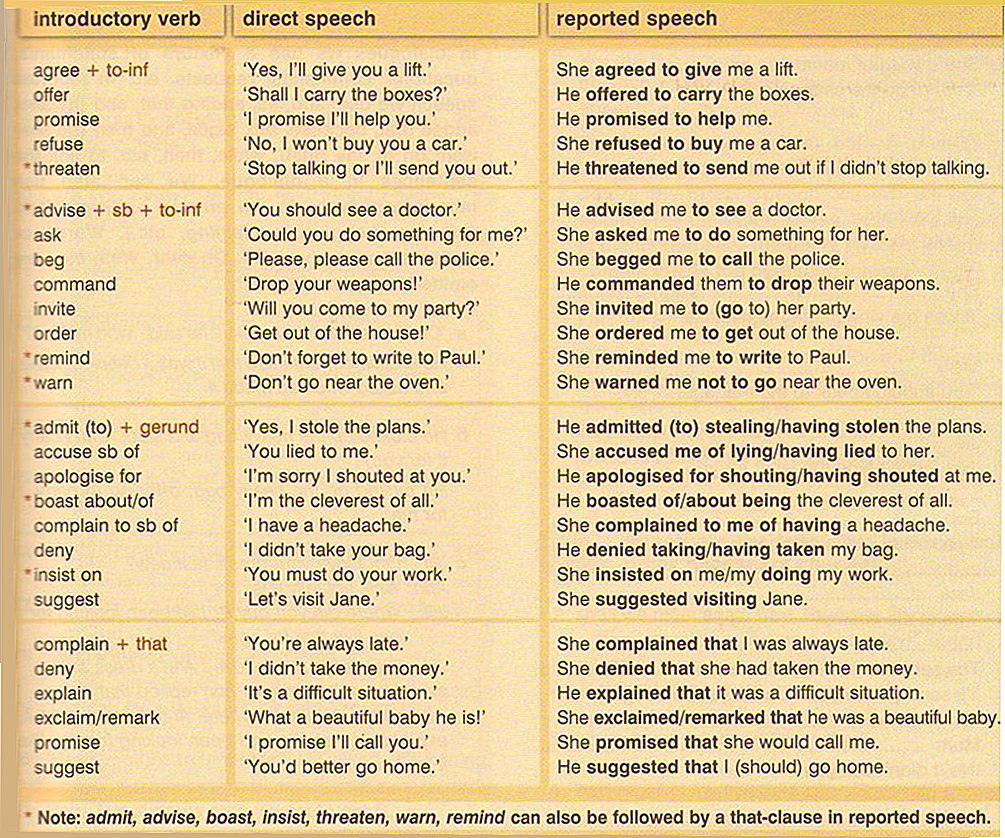
Direct and reported speech are two different ways to say what someone else said.
In direct speech, we quote the exact words that were spoken. We put quotation marks around what was said and add a speech tag such as "he said" or "she asked" either before or after the quote. For example:
"Are you free tonight?" she asked.
"I failed a test last week," she said.
He asked, "Have you seen any good movies lately?"
We can also use direct speech to say what someone is saying right now, as in: She says "Hurry up."
Reported speech is another way of saying what someone said, but without quotation marks. Reported speech doesn't repeat the words exactly as they were spoken. It changes the tense of all the verbs that were used. For example, if the speaker used a present tense verb, we change it to the past tense. If the speaker used a past tense verb, we change it to past perfect. We also change pronouns and time expressions.
See how the quotations given in direct speech above look in reported speech. Notice the changes in verb tense:
She asked if I was free that night.
She said she had failed an exam the week before.
He asked if I had seen any good movies lately.